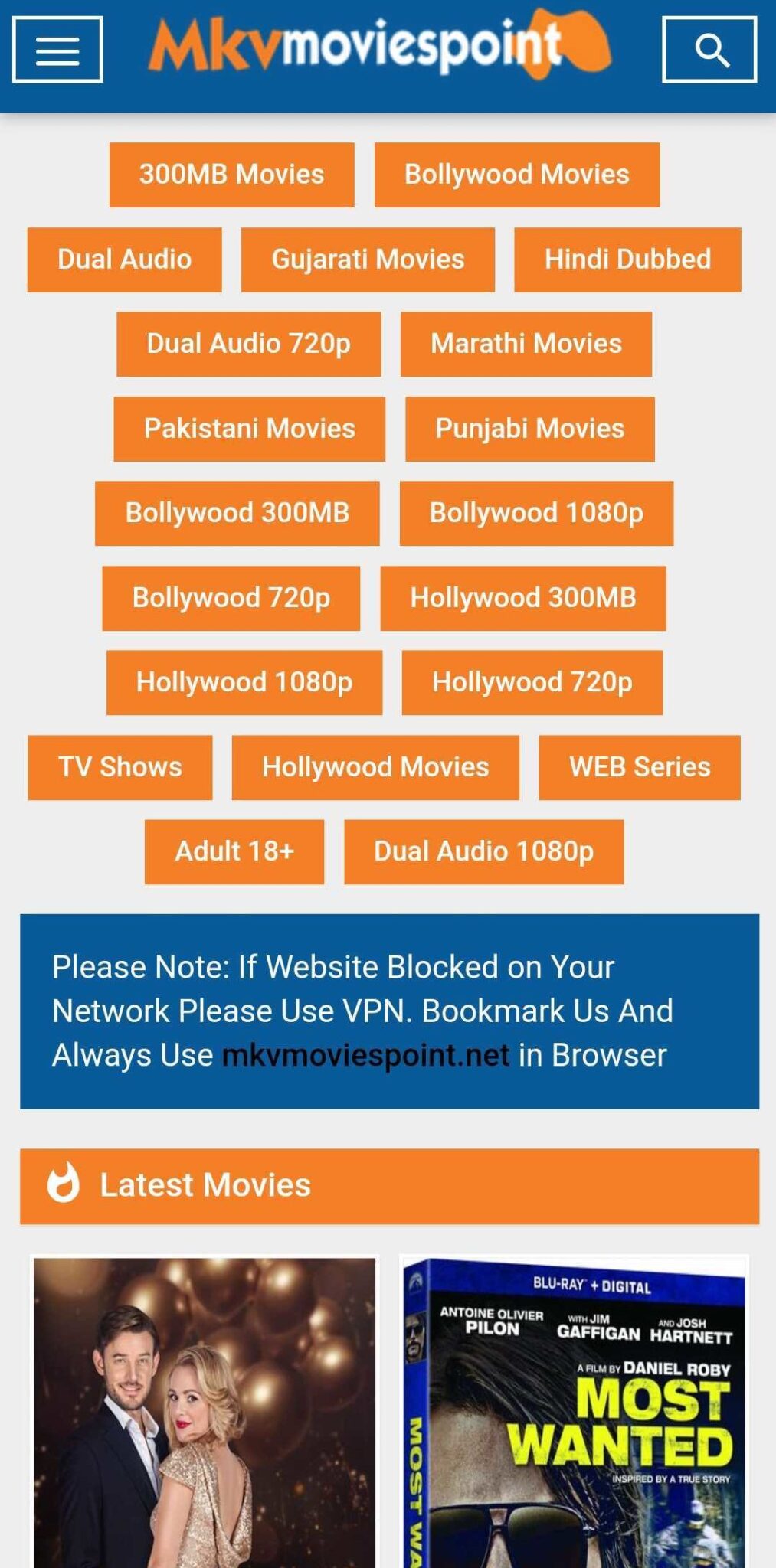Ultimate Guide To MKV Point Movie: Everything You Need To Know
Hey there movie lovers! If you’re reading this, chances are you’ve stumbled across the term “MKV point movie” and are curious about what it’s all about. You’re not alone, my friend. In today’s digital world, understanding file formats like MKV is crucial if you want to enjoy movies with top-notch quality and flexibility. So, buckle up because we’re diving deep into the world of MKV point movies, and by the end of this guide, you’ll be an expert. No kidding, this is going to be epic!
Now, let’s break it down. MKV point movie is essentially a file format that’s becoming super popular among movie enthusiasts. It’s not just another random file type; it’s like the Swiss Army knife of video formats. Why? Because it can hold a whole bunch of stuff—video, audio, subtitles, and even chapters—all in one neat package. It’s like packing your entire movie-watching experience into a single file. Cool, right?
But hold on, we’re just getting started. In this ultimate guide, we’re going to cover everything you need to know about MKV point movies. From what they are to how to use them, and even some tips and tricks to make your movie-watching experience smoother than ever. So, without further ado, let’s jump right in!
Read also:Nella Domenici The Iconic Italian Diva Redefining Music
Daftar Isi
Read also:Victoria Rae Black The Rising Star Shaping The Entertainment Industry
What Is MKV Point Movie?
Alright, let’s start with the basics. MKV, short for Matroska Video, is an open-standard container format. Think of it as a digital suitcase that can hold all the components of your favorite movies. This includes video, audio, subtitles, and even chapters, all in one file. The term “point movie” simply refers to the fact that you can access specific points in the movie easily, thanks to the advanced features of the MKV format.
So, why should you care about MKV point movies? Well, if you’re someone who loves movies and wants the best possible experience, MKV is a no-brainer. It’s like having a premium ticket to your own personal cinema. You get better quality, more flexibility, and a whole lot more control over how you watch your movies.
Why MKV is the Go-To Format
Here’s the deal. MKV is not just another file format. It’s designed to be future-proof, meaning it can adapt to new technologies as they emerge. This makes it a favorite among tech-savvy movie lovers who want to future-proof their movie collections. Plus, it’s open-source, which means no pesky licensing fees or restrictions.
The History of MKV
Let’s take a trip down memory lane. MKV was first introduced in 2002 by the Matroska development team. The goal was simple yet ambitious: create a universal container format that could handle everything multimedia-related. Fast forward to today, and MKV has become one of the most widely used video formats around.
So, how did it become so popular? Well, it all boils down to its versatility and flexibility. Unlike other formats that are limited in what they can do, MKV can handle just about anything you throw at it. This has made it a favorite among movie enthusiasts, tech geeks, and even professionals in the film industry.
Key Milestones in MKV’s Journey
- 2002: MKV is first introduced to the world.
- 2005: MKV gains traction among tech enthusiasts.
- 2010: MKV becomes a staple in the digital movie world.
- 2023: MKV continues to evolve and improve, cementing its place as a top-tier format.
Benefits of MKV Point Movie
Now, let’s talk about the good stuff. What makes MKV point movies so great? For starters, they offer superior quality compared to other formats. This means your movies will look and sound better than ever. But that’s not all. Here are some of the top benefits of using MKV point movies:
- High-Quality Video and Audio: MKV supports a wide range of codecs, ensuring you get the best possible quality.
- Flexibility: You can add or remove tracks, subtitles, and chapters without affecting the main file.
- Compatibility: MKV works with most modern media players, so you don’t have to worry about compatibility issues.
- Customization: Want to watch your movie in a different language? No problem. MKV lets you switch audio and subtitle tracks on the fly.
Why MKV Stands Out
Let’s face it. There are a lot of video formats out there, but MKV stands out for a reason. Its ability to adapt and evolve with technology is unmatched. Plus, its open-source nature means it’s constantly being improved by a community of dedicated developers. This ensures that MKV remains relevant and useful for years to come.
Key Features of MKV Format
Alright, let’s dive into the nitty-gritty. What exactly makes MKV so special? Here are some of its key features:
- Multi-Track Support: MKV can handle multiple video, audio, and subtitle tracks simultaneously.
- Chapter Support: Easily navigate through your movie with built-in chapter markers.
- Metadata Support: Add useful information like titles, descriptions, and tags to your files.
- Error Recovery: If a file gets corrupted, MKV can still play the undamaged parts.
These features make MKV a powerhouse when it comes to video formats. Whether you’re a casual movie watcher or a professional filmmaker, MKV has something to offer.
How MKV Enhances Your Movie-Watching Experience
Imagine being able to switch between different audio tracks without having to restart the movie. Or being able to access specific scenes with just a few clicks. That’s the kind of flexibility MKV offers. It’s like having a personal assistant for your movies, making sure everything runs smoothly.
Converting Files to MKV
So, you’ve got a bunch of movies in other formats, and you want to convert them to MKV. No worries, it’s easier than you think. There are tons of tools out there that can help you convert files to MKV. Some of the most popular ones include HandBrake, Freemake Video Converter, and MKVToolNix.
Here’s a quick guide on how to convert files to MKV using HandBrake:
- Download and install HandBrake from their official website.
- Open HandBrake and select the file you want to convert.
- Choose MKV as the output format.
- Adjust any settings you want, like video quality or audio tracks.
- Click Start Encode and let HandBrake do its magic.
And just like that, you’ve got yourself a shiny new MKV file ready to rock your world.
Tips for Converting Files
Here are a few tips to make the conversion process smoother:
- Backup Your Files: Always keep a backup of your original files just in case something goes wrong.
- Choose the Right Settings: Don’t be afraid to experiment with different settings to find what works best for you.
- Be Patient: Converting files can take some time, especially if you’re working with large files. So, grab a coffee and relax.
Playing MKV Files
Now that you’ve got your MKV files, it’s time to put them to use. Luckily, most modern media players support MKV out of the box. Some of the best ones include VLC, MPC-HC, and PotPlayer. These players offer a wide range of features and are easy to use, even for beginners.
Here’s how to play MKV files using VLC:
- Download and install VLC from their official website.
- Open VLC and select Media > Open File.
- Browse to the location of your MKV file and select it.
- Click Play and enjoy your movie.
Simple, right? And the best part is, VLC is free and open-source, so you don’t have to worry about pesky licensing fees.
Enhancing Your Watching Experience
Want to take your movie-watching experience to the next level? Here are a few tips:
- Use External Subtitles: If the subtitles in your MKV file aren’t up to snuff, you can always add external ones.
- Adjust Audio Settings: Experiment with different audio tracks to find the one that suits you best.
- Customize Playback: Most media players let you adjust things like playback speed and video filters.
Troubleshooting MKV Issues
Even the best formats can have issues sometimes. If you’re having trouble with your MKV files, don’t panic. Here are a few common problems and how to fix them:
- File Won’t Play: Make sure you’re using a media player that supports MKV. If the problem persists, try updating your player.
- Audio or Video Out of Sync: This can happen if the file was poorly encoded. Try using a tool like MKVToolNix to fix the sync issues.
- Subtitles Not Working: Check if the subtitle track is enabled in your media player. If it is, try downloading external subtitles.
With these tips, you should be able to tackle most MKV-related issues with ease.
When All Else Fails
If you’ve tried everything and are still having issues, don’t hesitate to reach out to the MKV community. There are tons of forums and groups where you can get help from fellow enthusiasts. Sometimes, a fresh pair of eyes can spot the problem you’ve been missing.
Security Concerns with MKV
Now, let’s talk about security. While MKV is a great format, it’s not without its risks. Like any digital file, MKV files can potentially contain malware or viruses. That’s why it’s important to always download files from trusted sources and scan them with a reliable antivirus program.
Here are a few tips to stay safe while using MKV files:
- Download from Reputable Sources: Stick to well-known websites and avoid sketchy download links.
- Scan Files Before Opening: Use a good antivirus program to scan your files before playing them.
- Keep Your Software Up to Date: Make sure your media player and antivirus software are always up to date.
Staying Safe in the Digital World
The internet can be a wild place, but with a little caution, you can enjoy all the benefits of MKV without putting your system at risk. Remember, it’s always better to be safe than sorry.
MKV vs Other Formats
So, how does MKV stack up against other video formats? Let’s take a look:
MKV vs MP4
MP4 is another popular video format, but it has some limitations compared to MKV. While MP4 is great for streaming, it doesn’t offer the same level of customization and flexibility as MKV. Plus, MKV’s support for multiple tracks and chapters gives it the edge when it comes to movie-watching.
MKV vs AVI
AVI used to be the king of video formats, but it’s starting to show its age. MKV offers better quality, more features, and better compatibility with modern media players. If you’re still using AVI,



